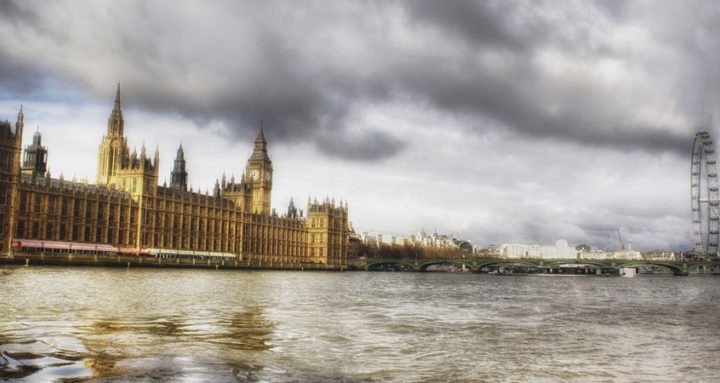Sceptical about Conservative scepticism
A survey of MPs on climate change asks the wrong question
By Richard Black
Share
Last updated:
By Richard Black, ECIU Director
The problem with opinion surveys is that the answers they produce are only as good as the questions they ask and the samples they survey.

Yesterday PR Week magazine reported results from a survey of MPs on their attitudes to climate change – and at first sight, they are stunning. ‘An overwhelming majority’ of Conservative Members of Parliament, the magazine concludes, ‘do not accept that climate change is man-made’.
It’s no secret that the parliamentary Conservative party contains a number of politicians sceptical of the scientific consensus on climate change (although the Tories are not unique here, as Labour’s Graham Stringer, for example, demonstrates).
Nevertheless, if a majority really were climate sceptics, it would be a very significant result. It would put the Conservative rank and file at odds with leaders past and present: with David Cameron, who earlier this year described climate change as ‘one of the most serious threats that this country and world face,’ and, most iconically, with Margaret Thatcher, the first leader of any major nation to call for a United Nations treaty on climate change.
Unfortunately Populus, the polling company engaged by PR Week, has asked the wrong question.
It asked whether MPs agreed or disagreed with the statement that man-made climate change has ‘been conclusively proved’. Well, it has not. The Intergovernmental Panel on Climate Change (IPCC), the organisation that conducts the most rigorous assessments undertaken in any scientific subject, concludes that it is at least 95% probable that human activities are the principal cause of modern-day climate change. That makes it highly likely – but not proven beyond all possible doubt.
I would venture to suggest that not many practising climate scientists would have agreed with the question as phrased by Populus. But that does not make them, or the Conservative MPs who responded to the survey, ‘climate sceptics’ or ‘deniers’. It’s worth noting that if 53% of Conservative MPs are labelled ‘climate sceptics’ on the basis of this question, then so are 33% of LibDems – and that, for sure, is far from reality.
A more practical approach would have been to ask the question in a form that reflects the conclusions of the IPCC assessment: ‘Do you agree that man-made activities are probably the main cause of modern-day climate change?’ Or: ‘Do you agree that man-made climate change poses significant risks to the UK and the rest of the world?’
Another potential issue with the Populus survey concerns the make-up of respondents. Populus sends its surveys to a group of about 250 MPs, and usually gets answers from about half of them. So there is potential for self-selection bias. Further, the set of responses may not reflect each parliamentary party as a whole – respondents could be predominantly from the right or the left of their party, for example, but pollsters are not able to discern this or correct for it.
Many Conservative MPs are concerned about climate change. The huge turnout for the launch earlier of this year of a publication from the Conservative Environment Network, with Michael Gove as the keynote speaker, is just one reflection of the fact. But they are often reluctant to embrace the narrative put forward by the most vocal groups in the arena, the environmental NGOs.
They do not like the certainty with which NGOs proclaim climate catastrophe, finding it (as noted above) out of tune with uncertainties present in the science. Nor do they instinctively cleave to the proposed solutions. Carbon taxation, creation of artificial markets, global treaties, European regulation – none of these are natural Conservative causes.
The Conservative party also tends to take a hammering from environment groups no matter what it does. For example, David Cameron confirmed this week that he will go to the UN climate summit in New York this month – a brave decision given the proximity of the Scottish independence referendum. Greenpeace used the opportunity to criticise the Conservatives’ record on coal.
In such an atmosphere, it must be hard for those Conservative MPs who are concerned about climate change to see any political upside from maintaining an active interest.
But again, that does not make them sceptics or deniers.
The world of climate change communication is full of memes, some more reliable than others. The findings from the survey that we released when we launched two weeks ago are becoming widely circulated memes. Almost half of the UK population believes there is no scientific consensus on man-made climate change, and only 5% knows there is widespread support for renewables: these are important findings, and reliably sourced.
It would be a shame if the notion that ‘Most Conservative MPs are climate sceptics’ achieved similar meme status. The PR Week/Populus survey, although I believe conducted with the best of intentions, cannot support it. Acknowledging the evidence for and the risks of climate change, while not believing it to be ‘conclusively proved’, is an entirely consistent position.
Share